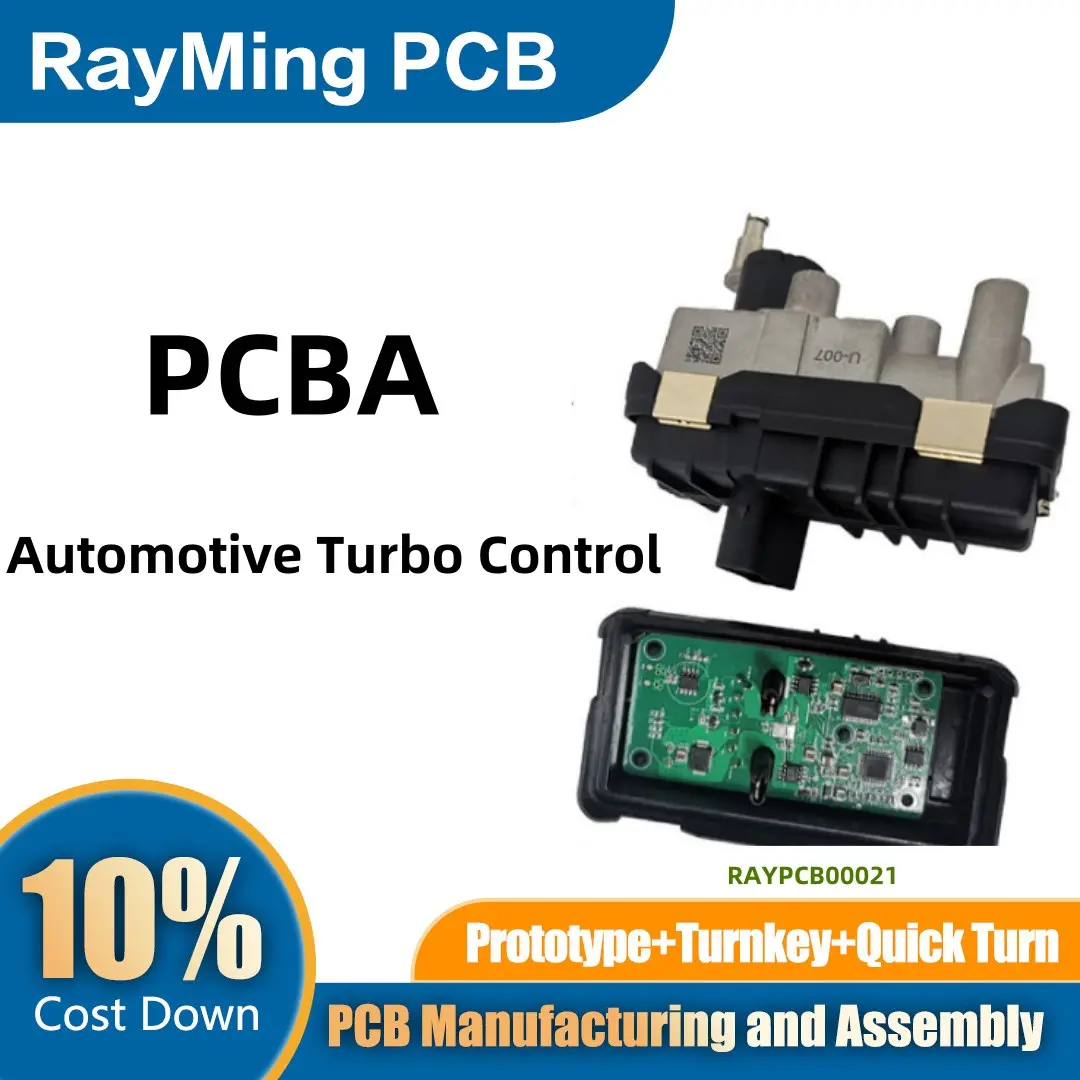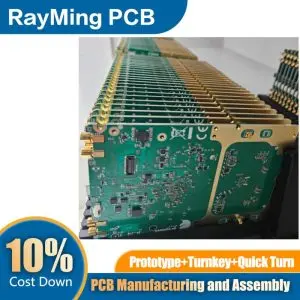RayMing Automotive Turbo Control PCBA
$50.00 Original price was: $50.00.$49.00Current price is: $49.00.
1. Design Considerations
1.1 Environmental Factors
- Temperature range: -40°C to 125°C (or higher)
- Vibration resistance
- Moisture and chemical resistance
- EMI/EMC compliance
1.2 Circuit Design
- Microcontroller selection (e.g., automotive-grade ARM Cortex-M)
- Sensor interfaces (pressure, temperature, speed)
- Actuator control circuits
- Power management
- Communication interfaces (CAN bus, LIN)
1.3 PCB Layout
- Multi-layer design (typically 4-6 layers)
- Controlled impedance for high-speed signals
- Thermal management considerations
- EMI/EMC design techniques (proper grounding, shielding)
1.4 Component Selection
- Automotive-grade components (AEC-Q100 qualified)
- Extended temperature range
- Low drift and high precision for sensors
- High reliability connectors
2.1 PCB Fabrication
- Material selection (e.g., high-Tg FR-4, polyimide)
- Copper weight selection (1 oz or 2 oz common)
- Surface finish (ENIG or hard gold for harsh environments)
- Dimensional stability considerations
2.2 Assembly
- Use of lead-free solder with high melting point
- Automated optical inspection (AOI)
- X-ray inspection for BGAs and hidden solder joints
- In-circuit testing (ICT) and functional testing
2.3 Conformal Coating
- Application of protective coating (e.g., acrylic, silicone, or parylene)
- Ensures protection against moisture and contaminants
2.4 Environmental Stress Screening
- Thermal cycling
- Vibration testing
- Humidity testing
3. Quality Control and Certification
3.1 Automotive Standards Compliance
- ISO 26262 (Functional Safety)
- IATF 16949 (Quality Management System)
- AEC-Q100 (Stress test qualification for integrated circuits)
3.2 Reliability Testing
- HALT (Highly Accelerated Life Testing)
- HASS (Highly Accelerated Stress Screening)
- Burn-in testing
3.3 Traceability
- Component level traceability
- Process traceability
- Lot control and serialization
4. Validation and Verification
4.1 Functional Testing
- Simulated load testing
- Communication protocol verification
- Sensor calibration and verification
4.2 Environmental Testing
- Temperature extremes operation
- Thermal shock resistance
- Vibration and mechanical shock testing
- Salt spray and chemical resistance testing
4.3 EMC Testing
- Radiated and conducted emissions
- Immunity to external EMI
- ESD (Electrostatic Discharge) testing
5. Production and Scaling
5.1 DFM (Design for Manufacturability)
- Optimize design for high-volume production
- Consider automated assembly requirements
5.2 Supply Chain Management
- Secure supply of automotive-grade components
- Implement multi-sourcing strategies for critical components
5.3 Continuous Improvement
- Implement statistical process control (SPC)
- Regular design and process reviews
- Failure analysis and corrective action procedures





